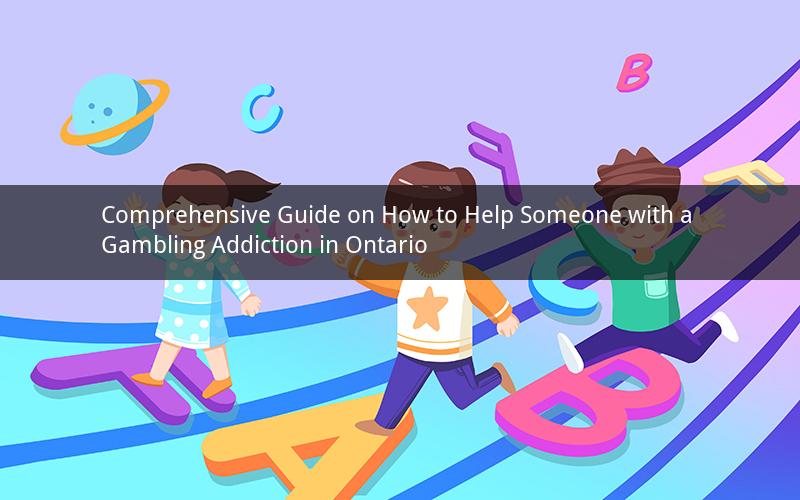
Introduction:
Gambling addiction is a serious issue that affects individuals, families, and communities. In Ontario, Canada, there are numerous resources and support systems available to help those struggling with a gambling addiction. This article will provide a comprehensive guide on how to help someone with a gambling addiction in Ontario, including understanding the addiction, finding appropriate support, and promoting a healthy recovery process.
Understanding Gambling Addiction:
1. What is a gambling addiction?
A gambling addiction, also known as problem gambling or compulsive gambling, is a behavioral disorder characterized by an inability to control or stop gambling despite negative consequences. It is a chronic condition that can lead to financial, emotional, and social problems.
2. Signs and symptoms of gambling addiction:
- Preoccupation with gambling, including thoughts about the next bet or win.
- Needing to increase the amount of money or time spent gambling to achieve the desired excitement.
- Feeling restless or irritable when attempting to cut down or stop gambling.
- Using gambling as a way to escape problems or negative emotions.
- Lying to family, friends, or healthcare professionals about gambling activities.
- Continuing to gamble despite knowing the negative consequences.
Finding Support:
1. Professional help:
Seeking help from a mental health professional is crucial in treating gambling addiction. In Ontario, various professionals specialize in addiction treatment, including psychologists, psychiatrists, and addiction counselors. These professionals can provide individual therapy, group therapy, and family counseling to address the underlying issues and develop coping strategies.
2. Gamblers Anonymous (GA):
Gamblers Anonymous is a worldwide support group for individuals struggling with gambling addiction. In Ontario, there are numerous GA meetings available, providing a safe and supportive environment for individuals to share their experiences and receive guidance from others who have overcome similar challenges.
3. Ontario Problem Gambling Helpline:
The Ontario Problem Gambling Helpline is a confidential and anonymous resource available 24/7. Trained counselors can provide immediate support, information, and referrals to appropriate services. The helpline number is 1-888-230-3505.
4. Community support groups:
There are various community support groups in Ontario that offer peer support and resources for individuals struggling with gambling addiction. These groups may include Al-Anon (for family and friends of gamblers) and Gam-Anon (for family and friends of problem gamblers).
Promoting a Healthy Recovery Process:
1. Encourage professional treatment:
Encourage the individual to seek professional help for their gambling addiction. Treatment may involve therapy, counseling, or residential programs, depending on the severity of the addiction.
2. Support the individual's goals:
Help the individual set realistic goals for their recovery process. These goals may include reducing gambling frequency, controlling spending, or seeking support from a professional or support group.
3. Provide emotional support:
Be a supportive and non-judgmental presence for the individual. Offer empathy, understanding, and encouragement throughout their recovery journey.
4. Educate yourself:
Learn about gambling addiction, its causes, and treatment options. This knowledge will help you better understand and support the individual's recovery process.
5. Encourage healthy habits:
Encourage the individual to engage in healthy activities and hobbies that can distract them from the urge to gamble. This may include exercise, meditation, or joining a social group.
6. Establish boundaries:
Set clear boundaries regarding financial and social interactions to prevent the individual from relapsing. This may involve limiting access to gambling venues or implementing financial restrictions.
7. Celebrate progress:
Recognize and celebrate the individual's progress in their recovery journey. Positive reinforcement can help maintain motivation and encourage continued progress.
Frequently Asked Questions:
1. Q: How can I tell if someone has a gambling addiction?
A: Look for signs such as preoccupation with gambling, increased spending on gambling activities, lying about gambling, and negative consequences in various aspects of their life.
2. Q: Can gambling addiction be cured?
A: While there is no cure for gambling addiction, it can be effectively managed through professional treatment, support groups, and healthy lifestyle changes.
3. Q: Should I confront the individual about their gambling addiction?
A: Confrontation may be counterproductive. Instead, approach the conversation with empathy, understanding, and a willingness to support the individual's recovery process.
4. Q: How can I support a family member with a gambling addiction?
A: Offer emotional support, encourage them to seek professional help, and educate yourself about gambling addiction. Be patient and understanding throughout their recovery journey.
5. Q: Can gambling addiction be prevented?
A: While there is no guaranteed way to prevent gambling addiction, promoting healthy habits, educating individuals about the risks, and fostering a supportive environment can help reduce the likelihood of developing an addiction.